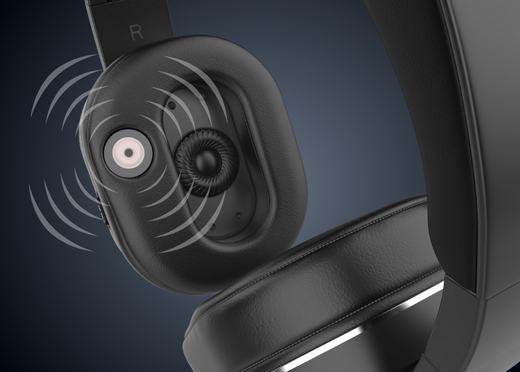In nursing homes, more than anywhere else, people with hearing impairments are overrepresented. In fact, more than 65% of residents are affected by deafness. Hearing loss is a source of misunderstanding for the hard of hearing and frustration for healthcare staff and caregivers. This leads to social isolation for the hard of hearing, accelerating their cognitive decline. What concrete measures are there to improve communication with hearing-impaired patients in nursing homes?
The consequences of hearing loss in nursing homes
Isolation and cognitive decline
When faced with hearing loss , nursing home residents have difficulty following conversations. This leads to anxiety and a loss of self-confidence. Seeking to escape these uncomfortable situations, people with hearing loss often withdraw from conversations, even becoming socially isolated.
This social isolation has detrimental effects on the hearing-impaired elderly person. There is an acceleration of cognitive and emotional disorders, which results in memory loss and/or depression.
Impact on caregivers and families
For caregivers and families, hearing loss is time-consuming because it requires repeated instructions. As a result, loved ones experience frustration when they are unable to communicate smoothly and effectively with their elders.
For healthcare professionals , deafness represents an increased risk of error in the transmission of medical information (diagnoses and treatment dosages).
Cost for residence
According to a study, the cost of caring for elderly people with loss of autonomy reaches €34,900 per year per facility . This includes people suffering from deafness, also known as presbycusis. The need to repeat instructions requires healthcare teams to increase the time spent talking with each patient to ensure they understand. This lengthens the duration of care and consultations. As a result, the quality of life at work (QWL) of medical staff is significantly affected due to the inherent stress and fatigue.
|
How do I calculate the financial impact of hearing loss in my institution? The myspokeo calculatorcarries out a personalized study for your establishment and simulates your future savings with the Spokeo listening assistant. |
What solutions are there for better communication with hearing-impaired residents?
Adapt the environment and communication practices
First, noise pollution in common areas must be minimized. A quiet environment is more conducive to good understanding, without causing excessive fatigue among nursing home residents.
Training professionals is an important lever for action, raising awareness of best practices. Speaking more slowly and with good articulation promotes lip reading, a valuable ally for people with hearing loss.
If necessary, the use of visual aids (written or pictograms) can be a good complement to reinforce the understanding of verbal exchanges.
Facilitate access to suitable hearing aids
Wearing hearing aids is an effective solution, but it is still underutilized in nursing homes. Hearing aids are difficult to access for people who are dependent or experiencing loss of autonomy, as they require an ENT diagnosis and follow-up with a hearing care professional.
It's worth noting that to prevent abuse, hearing aid specialists are prohibited from visiting nursing homes. As a result, only 19% of seniors use hearing aids, and 79% of caregivers lack training in hearing aid management. Hearing aids require regular maintenance and cleaning to ensure their performance. This deficiency partly explains the low rate of hearing aid use in senior living facilities.
As a result, people suffering from hearing loss and living in nursing homes do not benefit from screening, which deprives them of a suitable hearing solution.
Headphones and hearing aids
Headphones and hearing aids are a simple and effective alternative for residents who experience difficulties with hearing aids. They improve sound perception without the discomfort associated with an in-ear implant.
Involving families and caregivers
Because of their special connection with patients, families and caregivers also have a role to play. Raising their awareness of appropriate communication and introducing them to modern hearing solutions is essential to facilitating communication with their loved ones.
Towards better care: the importance of innovative solutions
New technologies have their place in nursing homes, improving patients' hearing while reducing stress for families and caregivers. The use of innovative solutions like the Spokeo listening assistant improvesthe support and well-being of people struggling with deafness. They thus maintain social ties, a real bulwark against isolation.
From the point of view of the healthcare establishment, thisincreases its productivity by improving the efficiency of the care provided by its staff.
What to remember
By 2025, hearing loss should no longer be a barrier to communication in nursing homes. Adapting practices, combined with staff awareness and the use of technological innovations, improves the quality of life of seniors.
Spokeo is part of this dynamic, offering an intuitive and effective solution to restore fluid communication in nursing homes.













